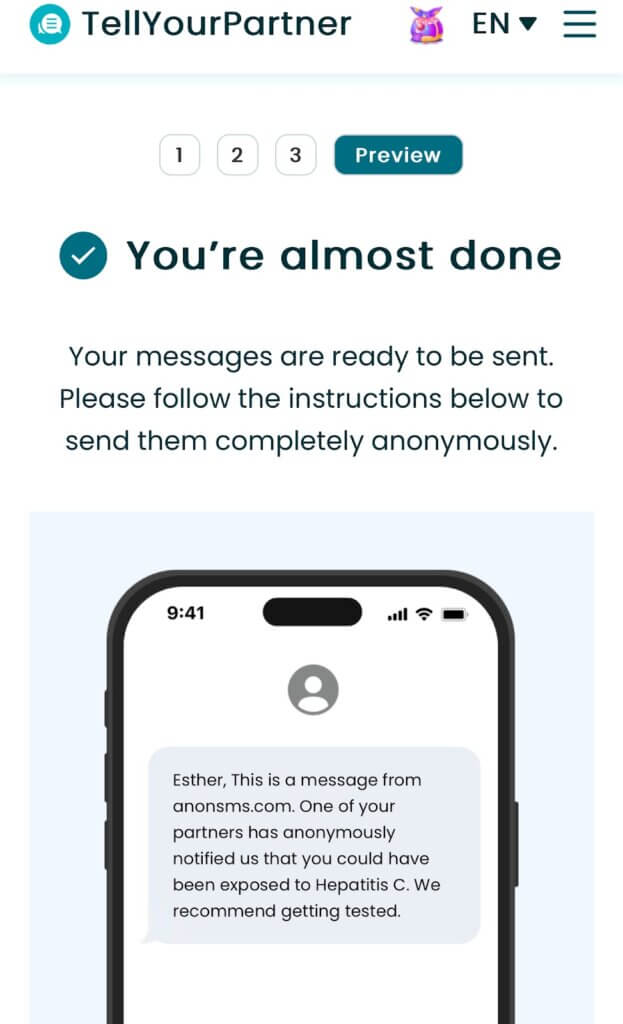Going for a Sexually Transmitted Infection (STI) test is an important part of both personal and public health. Getting tested does not only protect you with early treatment; it also ensures that you’re conscious of not spreading the infection to others.
How to navigate the testing process in a city like Toronto that has comprehensive sexual health services can be overwhelming at first. But this article will guide you through the entire STI testing Toronto journey—from understanding what STIs are, where & how to get tested, the process & timing, what to do if positive, and the best way to notify your sexual partners.
Understanding Sexually Transmitted Infections (STIs)
Sexually Transmitted Infections (STIs) refer to infections that are caused by pathogens (bacteria, viruses, parasites, or fungi). The term “STI” basically has to do with the presence of an infection, meaning the pathogen has entered the body and may have started growing but may not be causing noticeable symptoms.
Sometimes, these infections are called STDs, with many people believing that they mean the same thing. However, there’s a major difference between STIs and STDs.
When an STI grows and begins to cause symptoms or damage to the body, it is classified as an STD (Sexually Transmitted Disease). The term “STD” means that the infection has developed to the stage where it’s causing identifiable complications. Hence, frequent sexually transmitted infection testing in Toronto is crucial, especially after having unprotected sex or before starting a new relationship.
Common Types of STIs
- Chlamydia
- Blennorragie
- Syphilis
- Herpes
- Trichomonase
- HIV (Human Immunodeficiency Virus)
- Hepatitis B and C
- Human Papillomavirus (HPV)
- Mycoplasma Genitalium
How STIs are Transmitted
STIs can be transmitted through several means, such as:
- Sexual Contact: Having vaginal, anal, or oral sex with an infected partner.
- Body Fluids: Exchange of body fluids like semen, blood, vaginal fluids, and sometimes saliva with an infected person.
- Blood: Sharing needles, syringes, and other sharp objects with an infected person.
- Mother-to-Child Transmission: During pregnancy, childbirth, or breastfeeding.
- Skin-to-Skin Contact: Some STIs, like herpes et HPV can be transmitted through direct skin contact with infected areas (may not even be penetrative sex).
Where and How to Get Tested for STIs in Toronto
There is a wide range of STI testing options in Toronto, making it accessible and convenient for residents across the city to seek immediate medical assistance. These include sexual health clinics, hospitals, urgent care centers, walk-in clinics, pharmacies, community health centers, university/college health services, etc.

Key Toronto Sexual Health Clinics
When considering where to get an STD test in Toronto, there are a few clinics that stand out for their specialized services. They are:
- Hassle Free Clinic: This is a community-based clinic that provides anonymous, confidential testing without OHIP (Ontario Health Insurance Plan) requirements. Hassle Free Clinic Toronto is known for its judgement-free environment and unique drop-in policy that operates on a first-come, first-served basis.
- Sexual Health Clinics (City of Toronto): These are government-operated clinics providing free STI testing with valid health cards across multiple locations. Toronto sexual health clinics operate an appointment-based system with some limited walk-in.
- medsEXPERT: This is a private medical clinic focusing on sexual health with rapid STI testing services. medsEXPERT STI testing in Toronto offers more flexible scheduling and produces test results faster than public clinics.
- Better2Know: Prides itself as the largest private HIV & STI testing provider in Canada, serving thousands of patients every year with customized tests designed by world medical experts. Better2Know is highly revered for its convenience, privacy, and access to experienced professionals.
- HQ Toronto: This is an LGBTQ+ focused sexual health clinic that offers culturally competent STI testing, including specialized education tailored to queer communities. HQ STI Testing in Toronto creates safe spaces for patients with staff trained in LGBTQ+ health needs.
- SAFER SIX: This is an inclusive health clinic not focused on the sexual, mental, and physical health of all genders and bodies. SAFER SIX operates pop-up clinics in various neighborhoods, particularly strong in outreach to gay, bisexual, and queer men.
- The Village Pharmacy: This is a full-service community pharmacy where everyone is welcomed. The Village Pharmacy combines testing with pharmaceutical services for one-stop sexual health care. Pharmacists provide guidance on testing and treatment options.
Free STI Testing Toronto Options
Many of Toronto’s sexual health services come with free testing, making STI screening available to everyone without any financial barrier. Some of the free STI testing Toronto options are:
- All Toronto sexual health clinics operated by the City of Toronto offer free tests to everyone with a valid health card.
- Hassle free clinic Toronto offers free STI testing to everyone, even those who don’t have OHIP coverage.
- University and college health care centers offer free testing to their students.
- Some community organizations organize free testing events, particularly for marginalized and queer communities.
How to Book Appointments/Walk-in Procedures
Many STI testing procedures in Toronto are conducted under either appointment-based or walk-in systems. They typically require booking through online portals or in person before gaining access to an expert.
While many STI screening Toronto centers operate on an appointment or walk-in procedure, Hassle Free Clinic operates on a drop-in policy, which basically functions on a first-come, first-served basis. The policy includes:
- No appointment is scheduled. A limited number of tickets is distributed at the beginning of each clinic session. Once the available tickets are finished, no additional clients can be seen for the day.
- For morning clinics, time tickets are distributed at 10:00 AM. For evening clinics, time tickets are distributed at 4:00 AM. They recommend coming 30-60 minutes before ticket distribution.
- Hassle Free Clinic hours vary for different genders and services.
Express Testing and Home Nurse Visits
If you have a busy schedule or you’re conscious of protecting your privacy by not going to health centers, there are several STI testing Toronto options that solve your concerns. This includes Express Testing and Home Nurse Visits.
- Express Testing: Involves shorter appointment time focusing on sample collection, reduced paperwork, and delivery of results via digital means.
- Home Nurse Visits: Involves specialized nurses coming to your location to test you and take your samples. Better2Know Everywhere Service is highly rated in this category for providing the same quality testing as clinic visits.
STI Testing Process and Timing in Toronto
Understanding what happens during an STI testing process in Toronto can help reduce anxiety and make you ready. Let’s explore the whole process, starting from the initial consultation to receiving your results.
Step-by-Step Testing Process
- Registration: Upon arrival at the STI testing center, you will be prompted to complete paperwork about your medical history and sexual health.
- Consultation: An STI medical expert will discuss your sexual history with you and your symptoms and determine which tests are appropriate.
- Sample Collection: Depending on the infections that are being tested for, various samples like urine, blood, or swabs will be collected.
- Physical Examination: If you have noticeable symptoms, an STI medical expert will perform a physical examination to check for visible signs of infection.

What is the STD Testing Window Period?
The STD testing window period refers to the incubation period of the infection. This means the time between when you got infected and when a test is to be conducted. Testing too early can sometimes result in false results because the infection may still be very silent and unnoticeable, even through samples.
According to Medical News Today, the recommended testing window for common STIs is as follows:
- HIV: 10-33 days for a nucleic acid test. 18-45 days for an antigen test. 23-90 days for an antibody test.
- Chlamydia: 1 to 2 weeks after exposure.
- Trichomonas: 1 week to 1 month after exposure.
- Syphilis: Within 3 weeks after sores appear.
- Gonorrhea: 5 days to 2 weeks after exposure.
- Herpes: 1 to 4 months after exposure.
- HPV: 3 weeks to a few months after exposure.
- Hepatitis: 3-6 weeks for hepatitis B. 2-6 weeks for hepatitis C.
STI Test Results Waiting Time Toronto
The waiting time varies depending on several factors, like
- Test Type: The testing method significantly impacts processing time. Bacteria tests usually take more time than molecular tests.
- Testing Facility: Because of the high number of patients in public testing facilities, the test results are usually more delayed when compared to private testing facilities.
- Specific STI: Different infections require different testing methods and processing times. For example, gonorrhea test results can be gotten in 1-3 days, while syphilis takes about a week.
- Tests Volume: STI test results waiting time in Toronto is also influenced by the number of tests to be conducted. During peak seasons, results may seem to be slow because there are a lot of people waiting.
However, there are some STI testing centers in Toronto that have a more standardized system to provide rapid and express testing results. They include:
- HQ Toronto: Express tests with results in hours.
- Better2Know: Results for many tests are gotten by the end of the business day.
- Rapid Point-of-Care Testing: Prioritizes HIV patients and provides results in minutes.
What to Do After Positive STD Test
Receiving a positive STI test result can make anybody feel down, but with proper care and guidance on what to do, the infection can be effectively managed or cured.
Want to know what to do after positive STD test? Follow this guide:
- Take time to process the test result and ask the medical expert any question you may have.
- Start taking the prescribed treatment as soon as possible to prevent the infection from developing into an STD.
- Mark your calendar for all follow-up appointments to the hospital.
- Join support groups or STI communities to help elevate your spirit and encourage you.
- Abstain from sex during the treatment period. And when you’re done with treatment, always use protection (like a condom).
- Pay attention to recurring symptoms and report to the hospital immediately.
Importance of Notifying Sexual Partners and Preventing Reinfection
Notifying your sexual partners of your STI is more important than you may think. It doesn’t just make you appear as an honest person; it also informs them of their possible exposure to the infection, prompting them to get tested and treated quickly. This also guarantees that you won’t be re-infected by them after you’ve taken care of yourself.
- Allows partners to get medical assistance before complications develop.
- Prevent the spread of infections to other people.
- Reduces the risk of becoming re-infected by an untreated partner.
- Ensure both of you are conscious of waiting till treatment is completed before resuming sex.
- Attend partner counseling together to improve communication about sexual health.

Anonymous Partner Notification Tools
Notifying your partner about your STI and their exposure can be a difficult conversation to have. Fortunately, you don’t necessarily have to inform them directly. You can tell them anonymously.
In Toronto, there are several anonymous STD partner notification tools that allow a person diagnosed with an STI to inform his/her sexual partners without an identity reveal. You can use these tools to tell your partner about your health status and their tendency to be infected while retaining information about your identity.
These tools break the barrier of communication between partners and offer other benefits, such as:
- Guarantees privacy between the diagnosed person and their partners, especially in toxic relationships.
- Lower risk of negative reactions that may result in conflict or violence.
- Reduce stigma since personal information like your identity can be removed from the message.
- Encourages partner testing, especially for people with multiple sex partners.
- Improve public health through higher notification rates, tests, and treatment, which curbs infection transmission.
How to Choose the Right Anonymous Notification Service in Toronto
When selecting an anonymous notification service in Toronto, here are 3 compulsory factors to consider:
- Ease of Use: Some notification services can be difficult to use and contain ads that cause intrusion when typing the message. They sometimes redirect users to another page, which can be frustrating.
- Anonymity Level: Some notification services claim to be anonymous but still require users to provide some personal information, such as their names, phone numbers, or email addresses. This information can be used to track the origin of the message. So, it is better to choose an anonymous service without registration.
- Geographic Reach: Choose an anonymous notification tool that has a wide reach, even beyond Toronto. This allows you to be able to send messages to partners outside Toronto and to all parts of the world.

There are a number of anonymous partner notification services in Toronto, but none offer comprehensive solutions like the Dites-le à votre partenaire service from Anonsms. This service comes with an STI text message template and full guides for communication with your sex partner, so users don’t need to worry about where to start, guarantees 100% anonymity, and supports international messaging.

 Anonymes
Anonymes
 Dites-le à votre partenaire
Dites-le à votre partenaire




